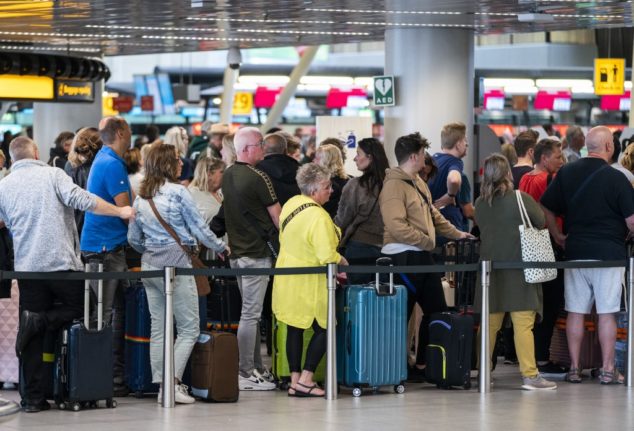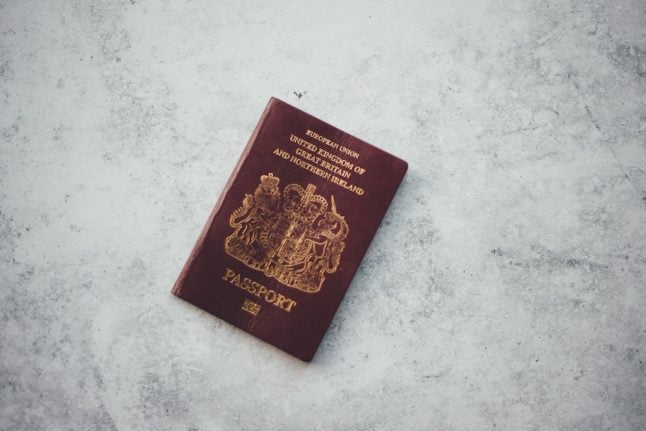The four-hour national strike scheduled for Sunday July 17th between 2pm and 6pm will involve air traffic controllers from Italy’s ENAV group, and pilots and flight attendants from EasyJet, Volotea and Ryanair and Crewlink, unions confirmed.
The strike, the latest in a series of protests in Italy in recent weeks over pay and conditions, comes at the height of the busy summer holiday season.
READ ALSO: Airport chaos in Europe: Airlines cancel 15,000 flights in August
While unions representing Ryanair staff had previously announced strike action planned for Sunday, those representing staff at EasyJet and Volotea confirmed on Wednesday they would join the protest following an unsuccessful meeting with officials from the Ministry of Infrastructure.
No details were immediately available as to how much disruption the strike would cause or which flights would be affected.
The Uiltrasporti union said pilots and flight attendants from the low-cost airlines were working under “continuing unacceptable conditions”, accusing EasyJet of unjustified dismissals and Volotea of lowering minimum wages.
The unions said air traffic controllers were suffering from Enav’s “manifest inability to communicate and manage personnel”, and threatened further protests if demands were not met.
READ ALSO: Airport chaos in Europe: What are your rights if flights are delayed or cancelled?
They said they had asked Italy’s Ministry of Infrastructure to open an “air transport crisis table” involving low-cost airlines to deal with wage and working condition issues.
EasyJet said in a statement it had been informed of the planned strike from 2:00 pm to 6:00 pm Sunday and said it was “doing everything possible to minimise any impact and limit disruption.”
Sunday’s strike is just the last one of a series of demonstrations that have affected the air travel industry over the past month – previous strikes were held on June 8th and June 25th.
It comes amid continuing chaos at airports around Europe, with many passengers suffering cancellations and significant delays.
The Italian government this week warned passengers to “travel light” to avoid long queues at check-in counters or when recovering their belongings.
On Tuesday, Italian consumer groups Codacons and Assoutenti accused airlines of being “irresponsible”, saying that they were ready to file lawsuits should passengers’ rights continue to be undermined.
In the event of delays and/or cancellations, the rights of all passengers are protected by EU regulation EC 261. This applies to any air passenger flying within the EU/Schengen zone, arriving in the EU/Schengen zone from a non-EU country by means of a EU-based airline (all airlines involved in Sunday’s strike are EU-based) or departing from the EU/Schengen zone.
This law holds airlines financially accountable for any flight disruptions they happen to be responsible for. That includes disruptions caused by airline staff strikes, including pilots, cabin crew, engineers and any other employees working directly for the company of interest.
Should your flight be significantly delayed or cancelled, you might be entitled to receive compensation from your airline.
You can find valuable information regarding flight delay or cancellation compensation on the website of claims management company AirHelp:
- AirHelp: flight delay compensation
- AirHelp: flight cancellation compensation



 Please whitelist us to continue reading.
Please whitelist us to continue reading.
Member comments